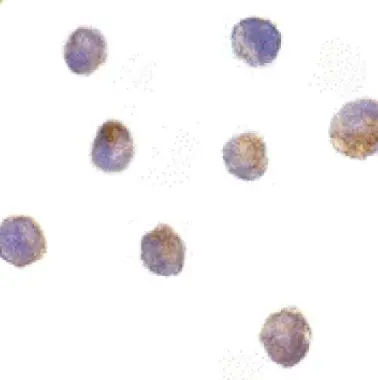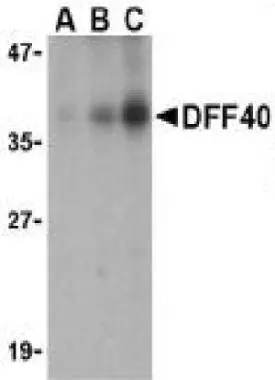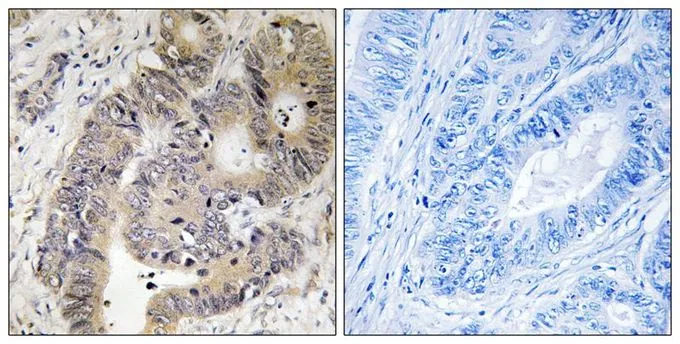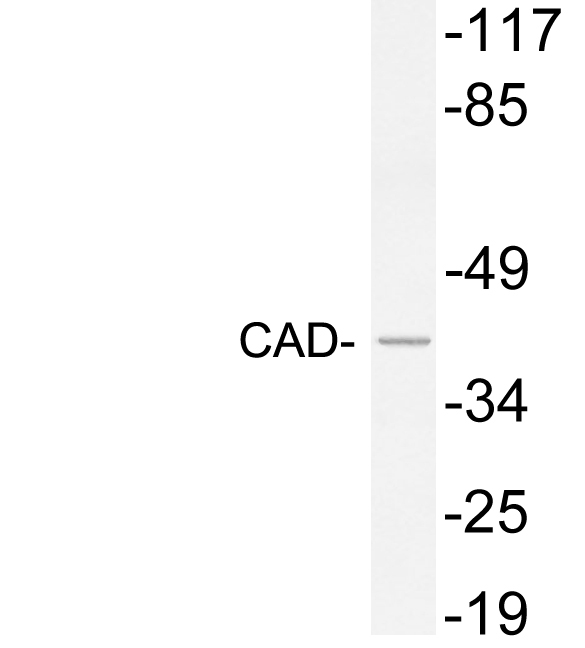
Immunocytochemical staining of DFF40 in K562 cells with CAD antibody (GTX28407) at 10microg/ml.
CAD antibody
GTX28407
ApplicationsImmunoFluorescence, Western Blot, ImmunoCytoChemistry
Product group Antibodies
ReactivityHuman, Mouse, Rat
TargetCAD
Overview
- SupplierGeneTex
- Product NameCAD antibody
- Delivery Days Customer9
- Application Supplier NoteWB: 1-2microg/ml. ICC/IF: 10microg/ml. *Optimal dilutions/concentrations should be determined by the researcher.Not tested in other applications.
- ApplicationsImmunoFluorescence, Western Blot, ImmunoCytoChemistry
- CertificationResearch Use Only
- ClonalityPolyclonal
- ConjugateUnconjugated
- Gene ID790
- Target nameCAD
- Target descriptioncarbamoyl-phosphate synthetase 2, aspartate transcarbamylase, and dihydroorotase
- Target synonymsCDG1Z, DEE50, EIEE50, GATD4, multifunctional protein CAD, CAD trifunctional protein, carbamoyl phosphate synthetase 2-aspartate transcarbamylase-dihydroorotase
- HostRabbit
- IsotypeIgG
- Protein IDP27708
- Protein NameMultifunctional protein CAD
- Scientific DescriptionThe de novo synthesis of pyrimidine nucleotides is required for mammalian cells to proliferate. This gene encodes a trifunctional protein which is associated with the enzymatic activities of the first 3 enzymes in the 6-step pathway of pyrimidine biosynthesis: carbamoylphosphate synthetase (CPS II), aspartate transcarbamoylase, and dihydroorotase. This protein is regulated by the mitogen-activated protein kinase (MAPK) cascade, which indicates a direct link between activation of the MAPK cascade and de novo biosynthesis of pyrimidine nucleotides. Alternative splicing results in multiple transcript variants encoding different isoforms. [provided by RefSeq, Apr 2015]
- ReactivityHuman, Mouse, Rat
- Storage Instruction-20°C or -80°C,2°C to 8°C
- UNSPSC12352203







